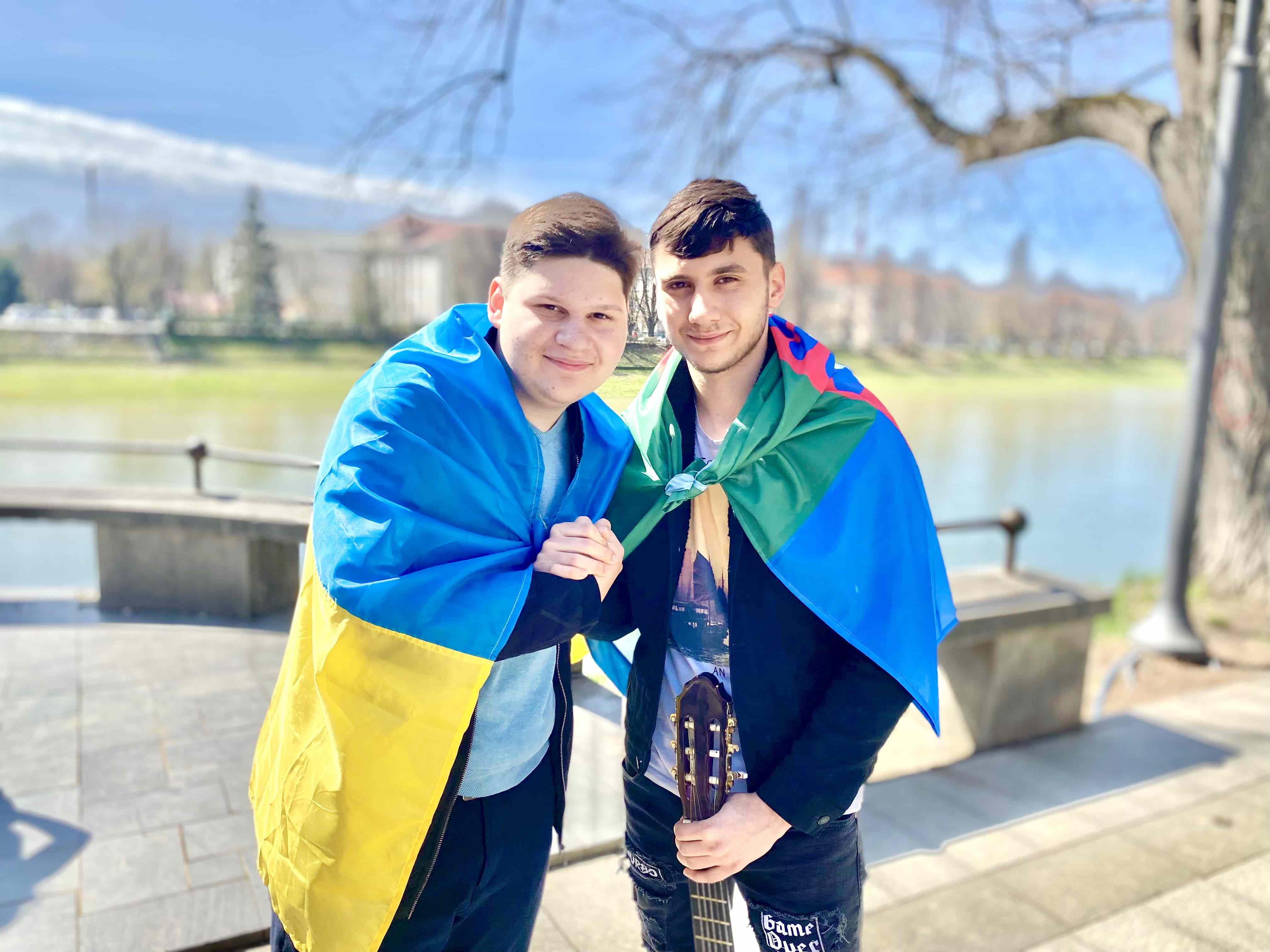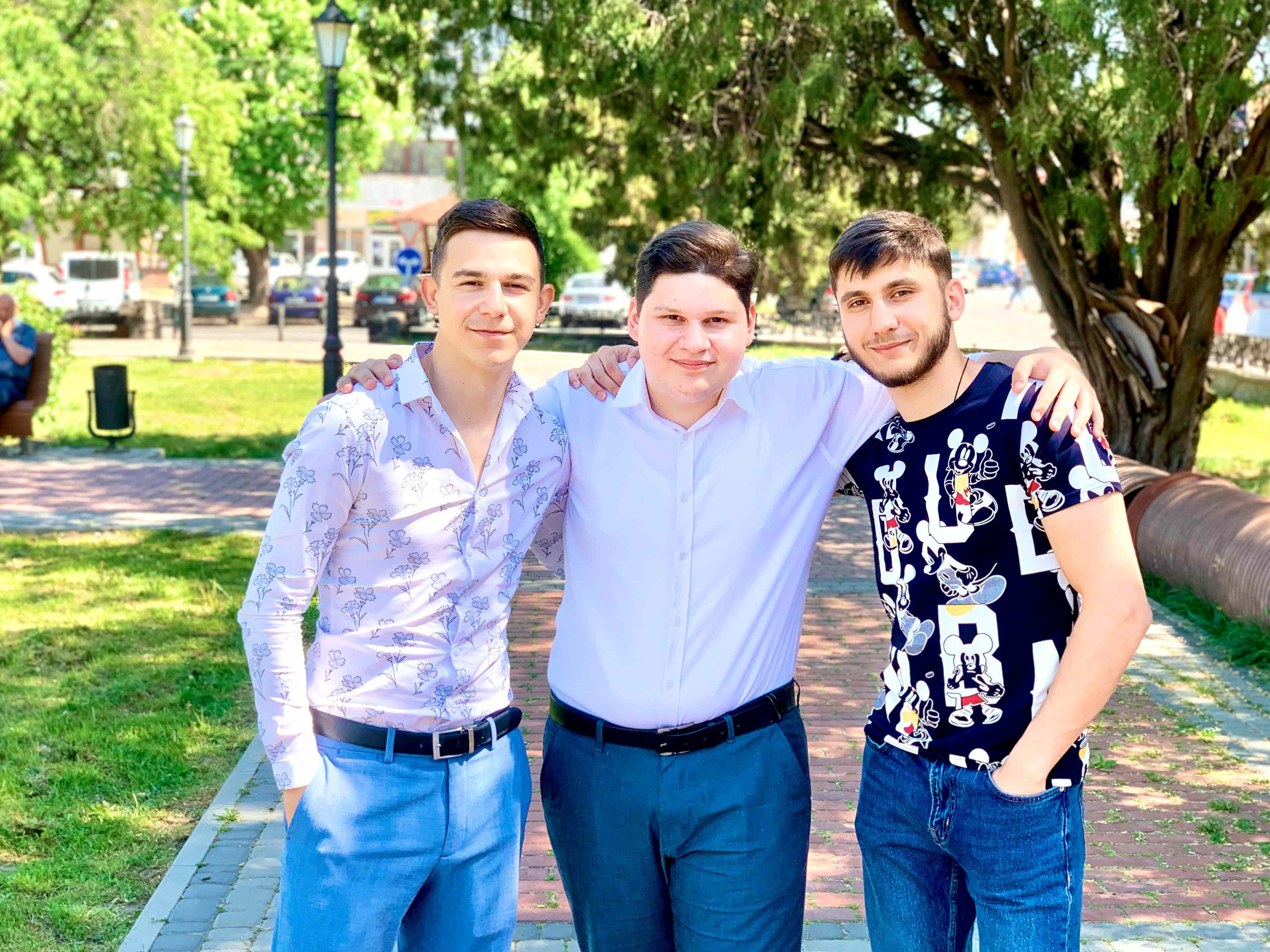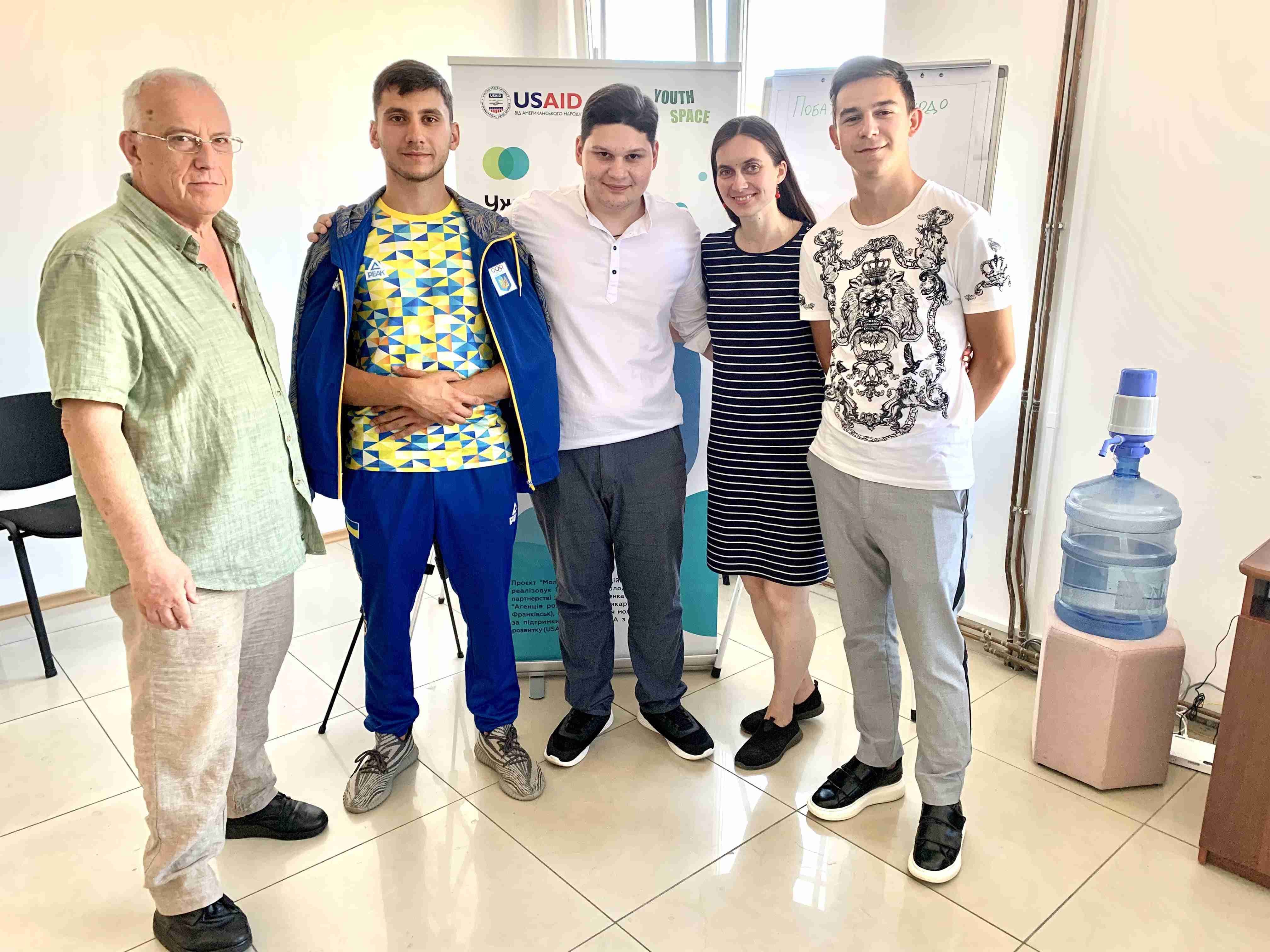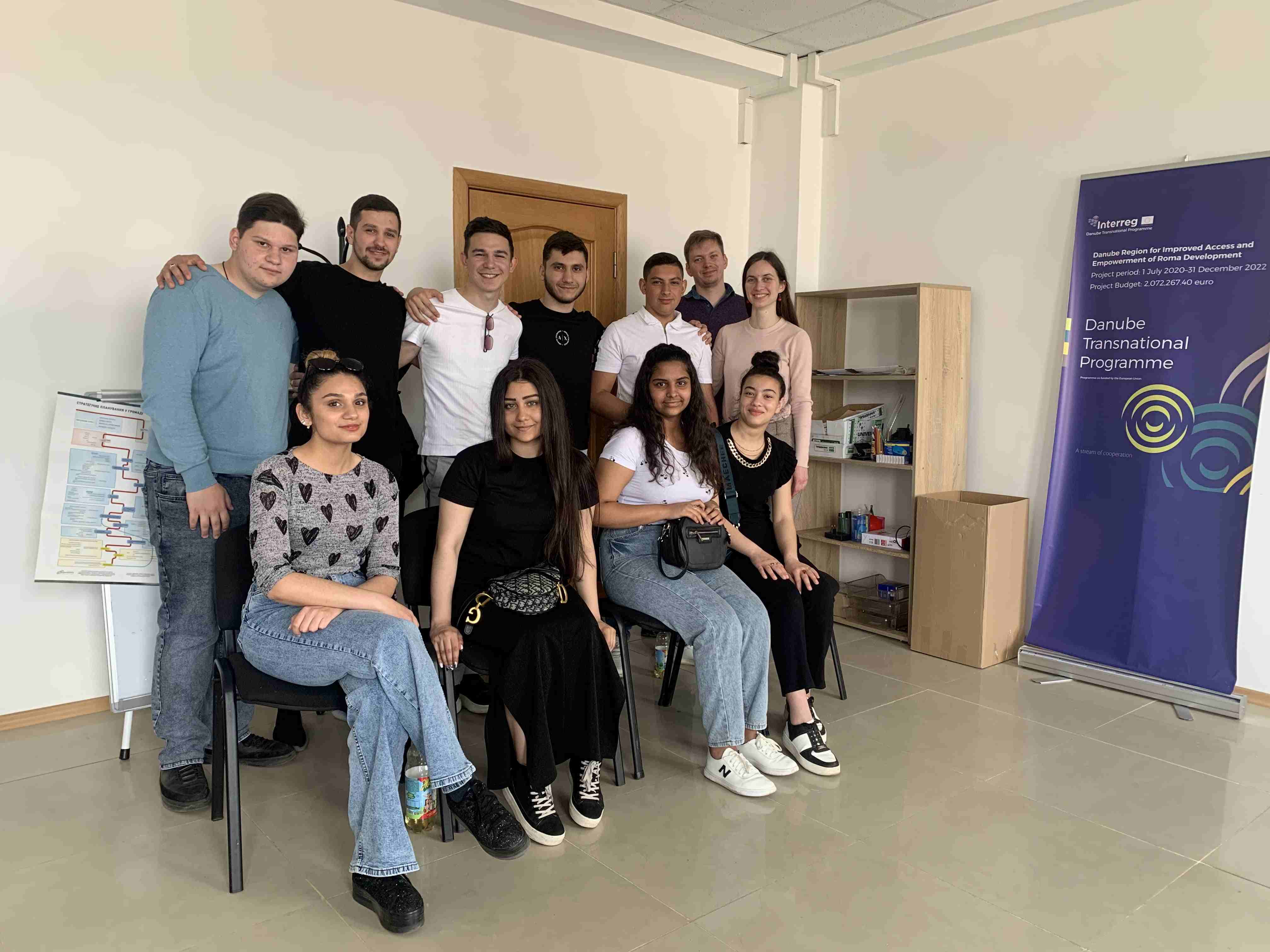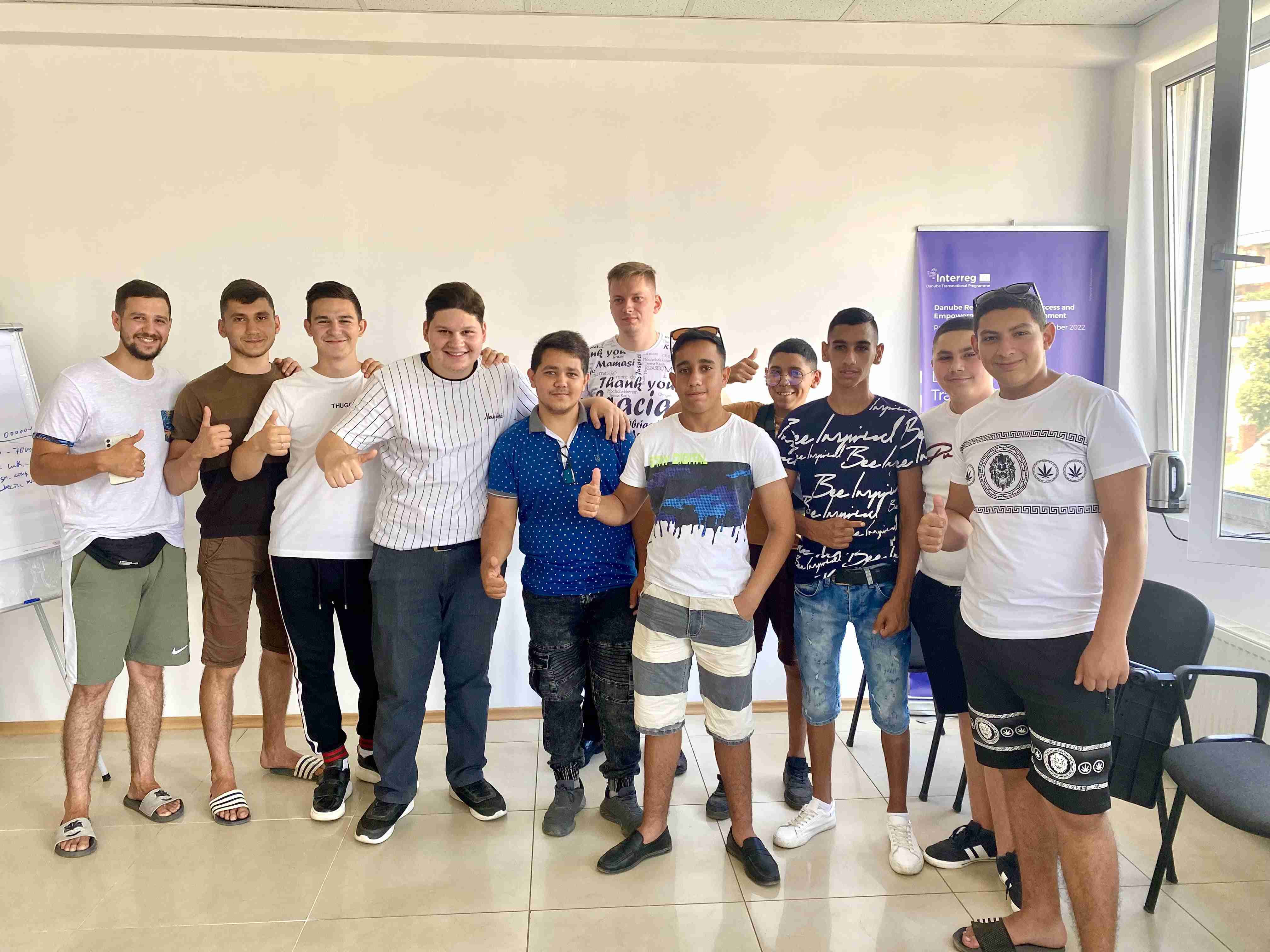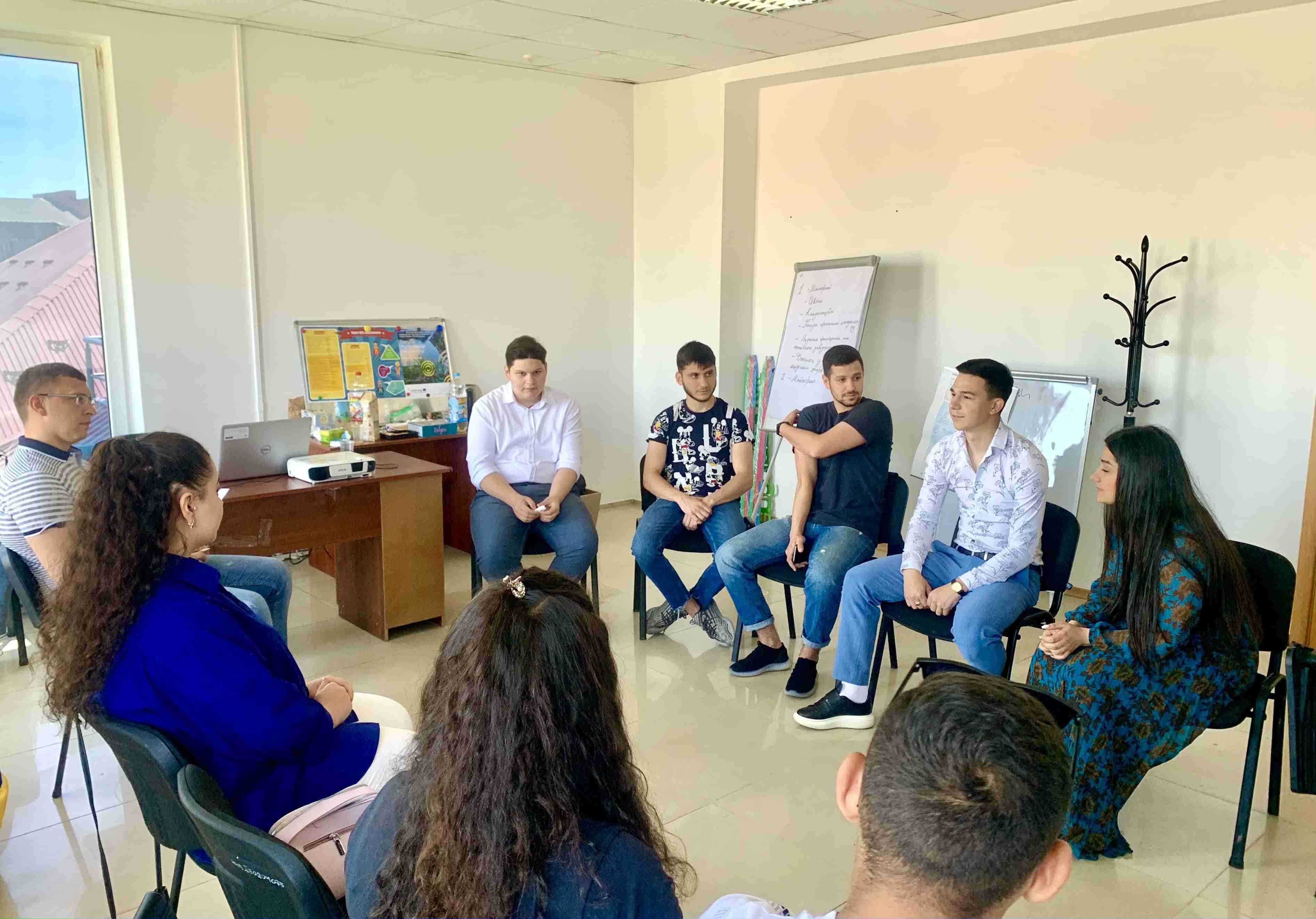Being only a 21-year-old man, Igor Antonenko is already a leader among Romani youth, a box athlete and a public volunteer.
As the full-scale invasion broke out, he was forced to move to Uzhhorod together with his family. He did not sit around and, with a team of his friends, organized a sports camp for children under the UNICEF’s authority. And now he is promoting a Romani religious community in the city of Cologne (Germany).
During our conversation with him, we are discussing his mission, devotion and love, all of them helping him not to lose his faith in the victory.
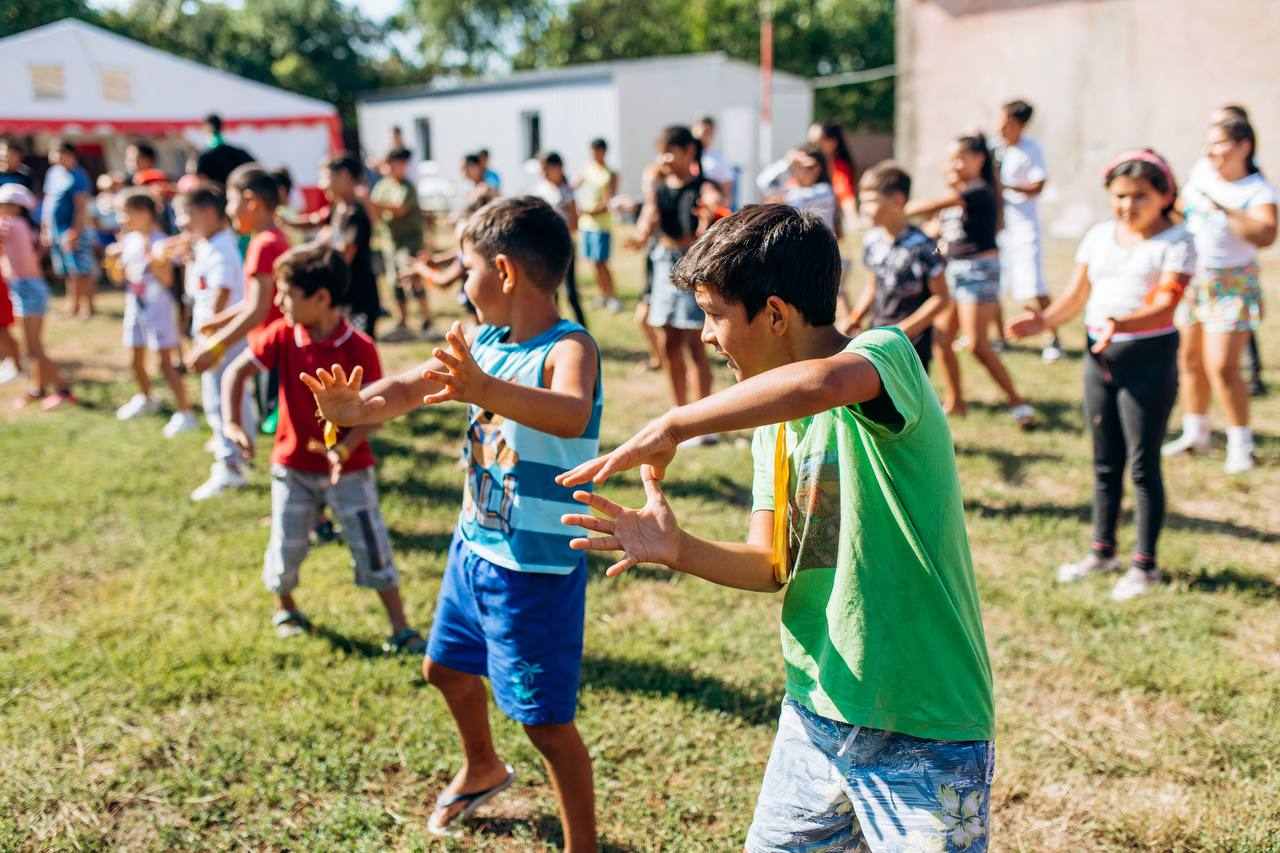
“We do not separate people – either a Roma or a Ukrainian. Everything is naturally united with us”
Ihor comes from Luhansk region and, as the war came to his home land back in 2014, his family and himself moved to Kharkiv. He used to be a common Ukrainian teenager for quite a long time – studying in a higher education establishment in Kharkiv, went in for boxing seriously. He won many prizes in regional and all-Ukraine competitions in boxing, became a candidate of sports and is now striving to develop his skills in boxing in the future.
“As a child, I used to be ashamed to admit that I am a Roma. I was quite busy with my sports and it was intentionally that I grew apart from my Roma roots, having other goals and aims in life.
But it was later, as I grew older, thinking of a family of my own, my future that I first thought – who am I?
So I began to communicate with Roma around me more often, learning more of our culture – dancing, singing and guitar strumming. I rather grew to enjoy it, feeling that my heart is in it.
So I realized that being a Roma is an advantage for me. However, my friends and I do feel ourselves Ukrainians.
“We do not separate people – either a Roma or a Ukrainian. Everything is naturally united with us”
As he discovered the Romani culture for himself, Ihor decided to help other Roma from his environment do the same. Together with his sister Elvira Antonenko and Rodion Khristov, a friend of his, he became a participant in the “Upshift” project by UNICEF, striving for Roma to discover their own culture through songs, dances, language. They even launched a football team of their own.
Our team’s goal is to tell all Roma there is something we should be proud of and unite around.
It is no secret that they take Romani culture via stereotypes. This is the reason why many of us have no wish to go for it, just not to have negative associations. And that is the reason why cultural peculiarities of a whole nationality are being lost. And then here we go, showing that it is valuable and cool!
Also, Ihor is one of spiritual youth leaders in his community, assuring that they are also united with Christianity. In particular, during the Christmas service in 2022, they presented their project results.
It appeared to be so interesting and successful that their community was even planning to found a separate Romani school with such a cultural accent. They even set up collaboration with the TCI (the Christian Institute of Tavria) in Kherson. Upon completing their studies, the students were supposed to acquire a Certificate of education and enter colleges or universities.
We then clearly saw a direction we could move in. We felt it was a breakthrough for us, we knew we could do so much. But it was the war that broke many people’s plans, so it did for ours.
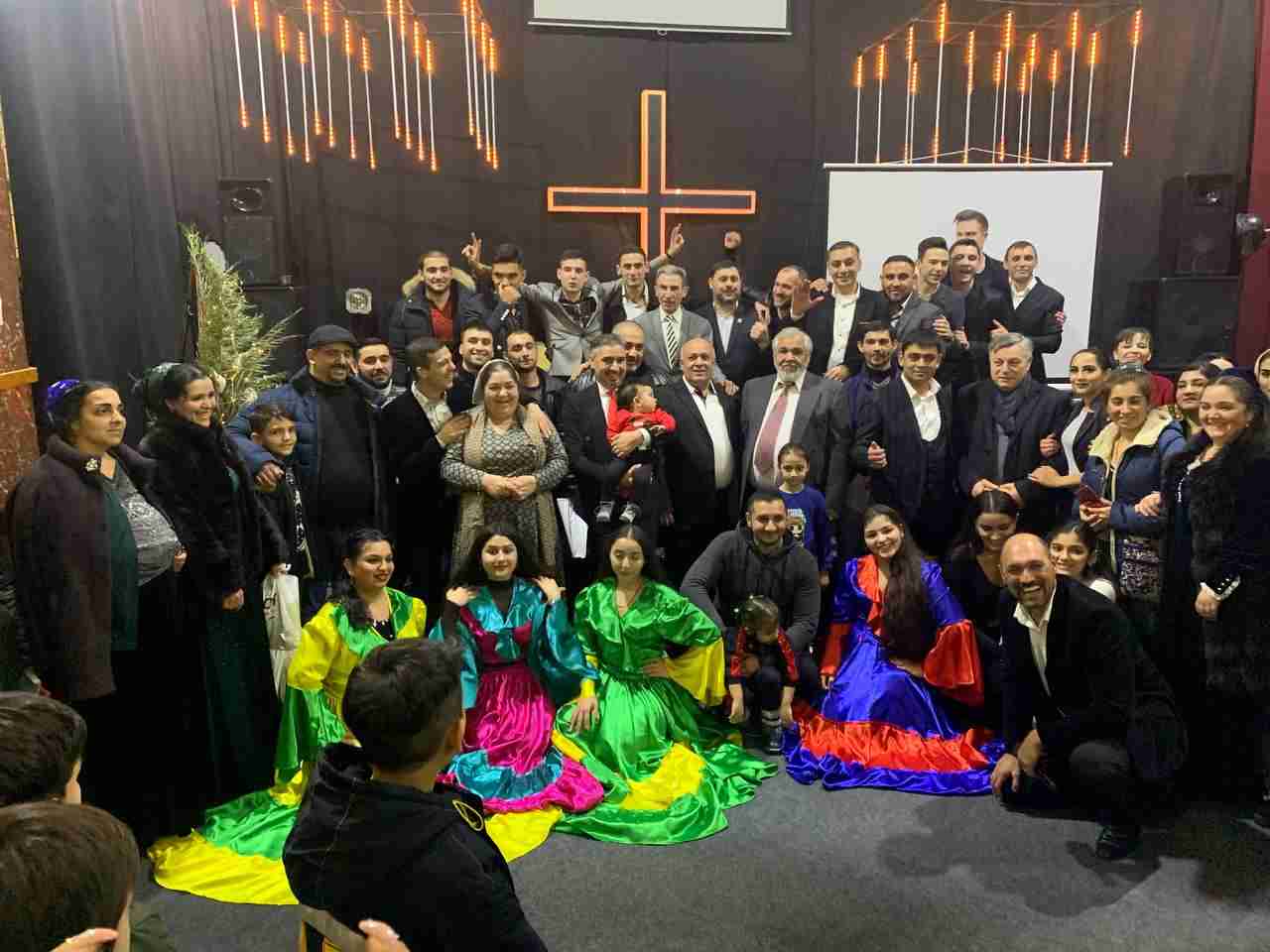
Our trip lasted for about 4 days, being let in for a night by common people. And that only made our self-confidence for being a united nation stronger
“The beginning of our story is much alike. The morning, explosions, panics. It was not something new for me, maybe that’s why it felt harder for me this time. All my memories from back in 2014 came back: how my neighborhood was bombed in Luhansk, with people dying, the ones I used to know, the way missile fell. I had gone through all of that once before. And when I heard the very same sounds, my first thought was: “No, not again!””
So at that time Ihor was calling everyone from the community, around a hundred people. After living in basements for some days, they realized it was time to leave and, by their friend’s advice, decided to set off for Uzhhorod.
“Our community is indeed a large one, about a hundred people. They all had to be evacuated. So we accepted the responsibility for ourselves for starting first, in order to find accommodation and track for the others.
”So we rode for some 4 days. We were let in for a night by common people. And that only made our self-confidence for being a united nation stronger.”
They were welcomed in Uzhhorod by the church community and Priest Yanosh.
“Those who had left before, entrusted him the keys from their homes. And he just took those and gave to the newly arriving people.”
In a few days they managed to organize a transfer to Uzhhorod for other families.
“There were issues with fuel, logistics, connection. It happened so that some families, having 3-4 kids, had to walk for some 10 kilometers to the muster point at the railway station, as it was unreal to find a taxi. And they did it under shellfire, risking the lives of the whole family”.
As they settled down in Uzhhorod, the former Kharkivians carried on their religious services and, Igor adds, it also helped them a lot.
“We felt indeed extremely hard spiritually, actually being unable to do anything for a month, you know, after all the shock and stress we had gone through. It really knocked us out, putting it lightly.”
It was there that we met Aladar Horvath (Editor – the Romani youth leader in Uzhhorod), starting to have a closer communication, and he kept telling us: “I can see you’re having hard times, let’s get together, talk, think on what can be done”. He suggested many ideas, and I am grateful him for insisting.
That’s how our work in Uzhhorod youth integration center started, and the collaboration helped us recover ourselves.
“Kids used to say they wish they would fall asleep sooner so that they could wake up sooner and go to the camp”
In July UNICEF announced a start for the second stage of the Upshift project. Ihor and his friends consulted their mentors – Vasilisa and Samira – and suggested the idea of a sports camp for children at a pitching session.
“We then clearly realized the value of our project and its motto – “Children need their childhood now”.
Kids really have difficulties to live through the war, I saw the dumb terror in their eyes. This vision, as you see a crying child, who cannot say anything but “mom” and “dad”. And their parents are helpless themselves, not knowing how to act and what to do. At these moments we did realize we had to act.
“There were some issues, for instance, with delays in budgeting. So we only had 3 days left for preparing everything, from food to accessories. We then roused the whole city. And, by the way, we did not really know the latter (smiling)”.
The 3-day camp, “The Daffodil”, had been visited by over 50 kids by late August, and some ten organizers.
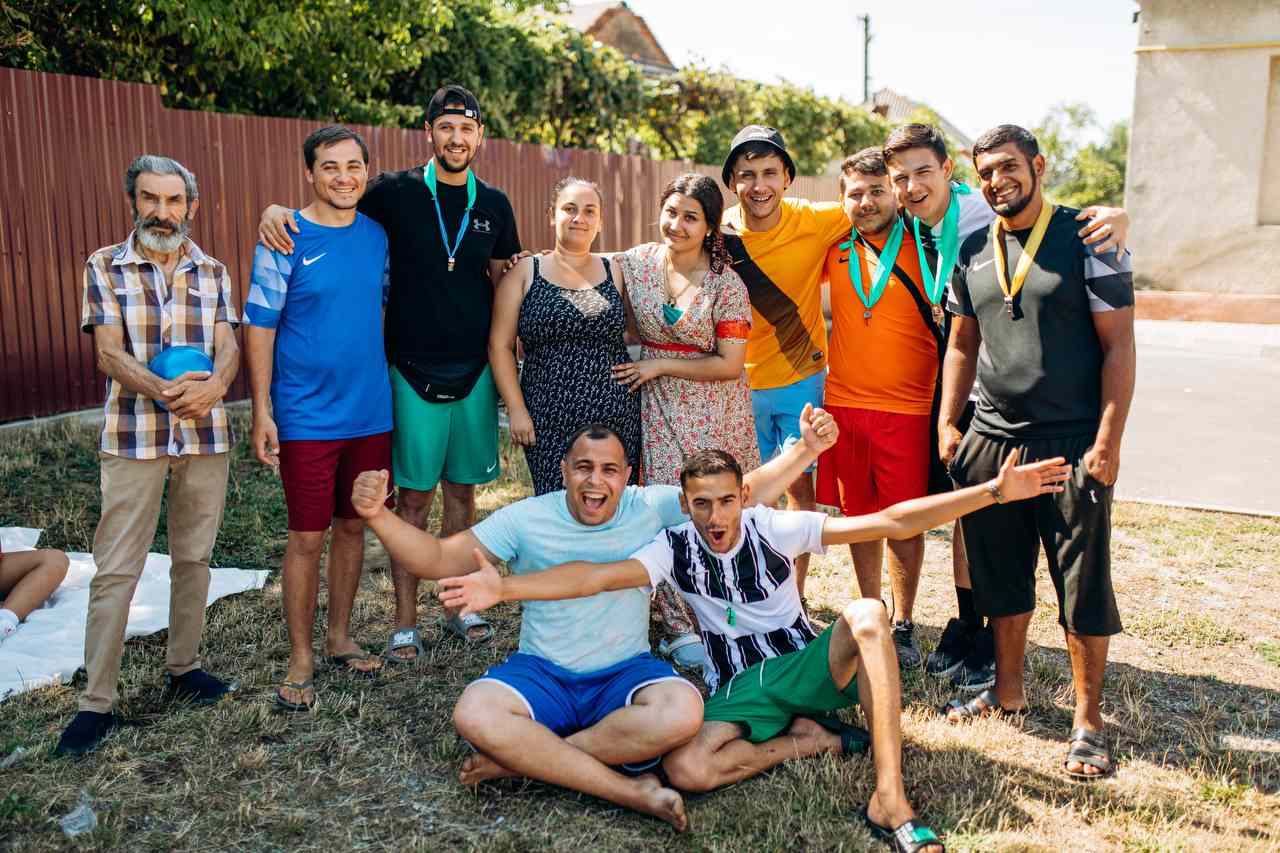
– Honestly, the kids of Uzhhorod are special, they differ from Kharkiv ones – in education, etiquette, behavior. We had expected that they would be naughty, might swear, behave in a wrong way.
The first day was so difficult that I already regretted of the project, thinking to myself: “Where the heck am I?” But, uniting our efforts and prayers, everything turned out to be alright. We played football, volleyball, had some boxing lessons. The kids had an opportunity to play for 3 day carelessly.
And, on day 3, as we were having the farewell talk, all of them started crying, hugging, not willing to let us go. And then I felt some huge warmth rising up in my heart! I had not expected such response from them at all. And it was not just a project but a matter we did with love. And everybody felt it, kids and organizers.
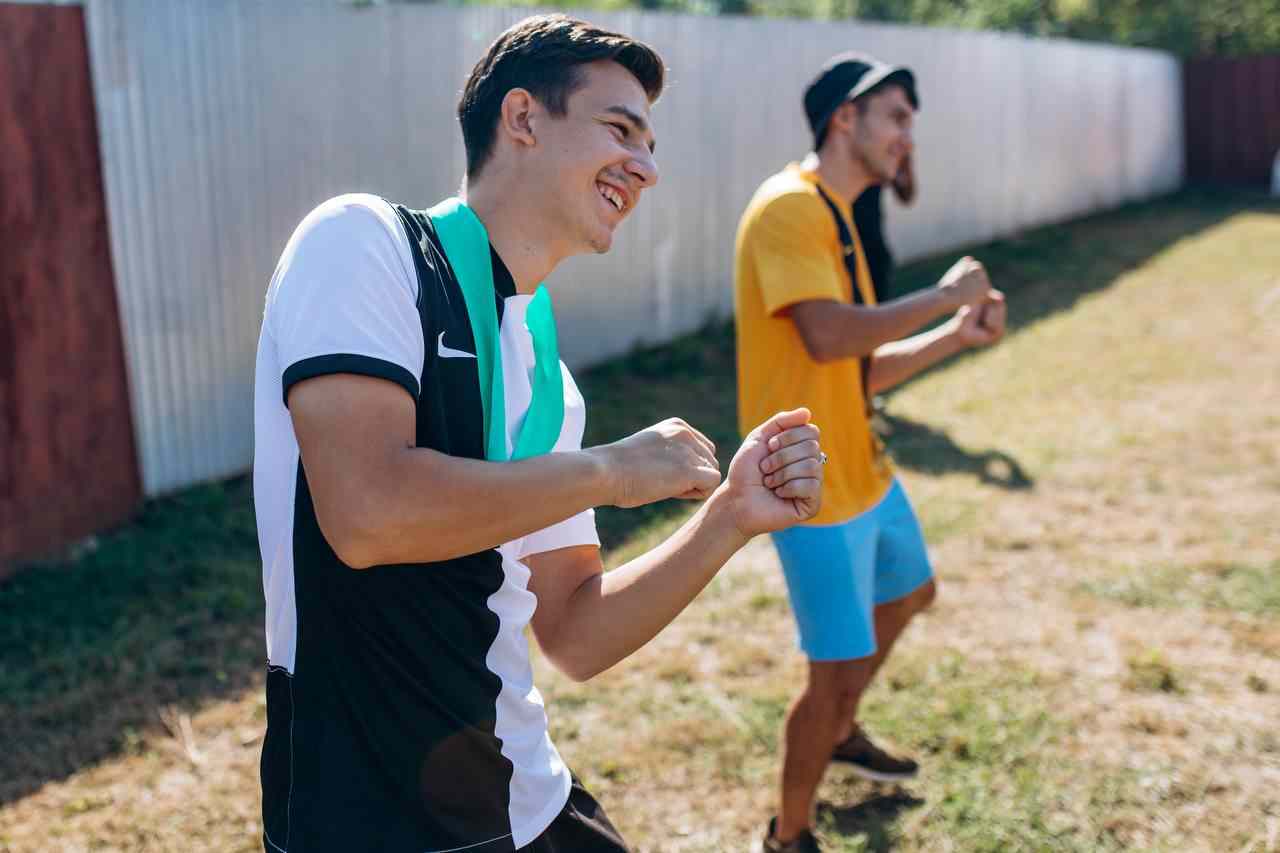
There was another illustrative situation. Every morning we planned a meeting at 8 AM and were worried if the kids would come the next day. So I arrive a bit earlier, about 7 AM, and they are all there waiting! I, kind of surprised, ask them whatever they are doing here so early in the morning, and they tell me: “We thought we are to be here by 7!” That was so moving.
And then they said they dreamed of falling asleep sooner, to wake up the sooner, to visit the camp. All that gave us motivation hope, understanding that it was not in vain at all!
And it is clear: the kids were able to distract their attention from the war, all the trauma memories and be usual kids, just like their mates in various countries. The goal was reached.
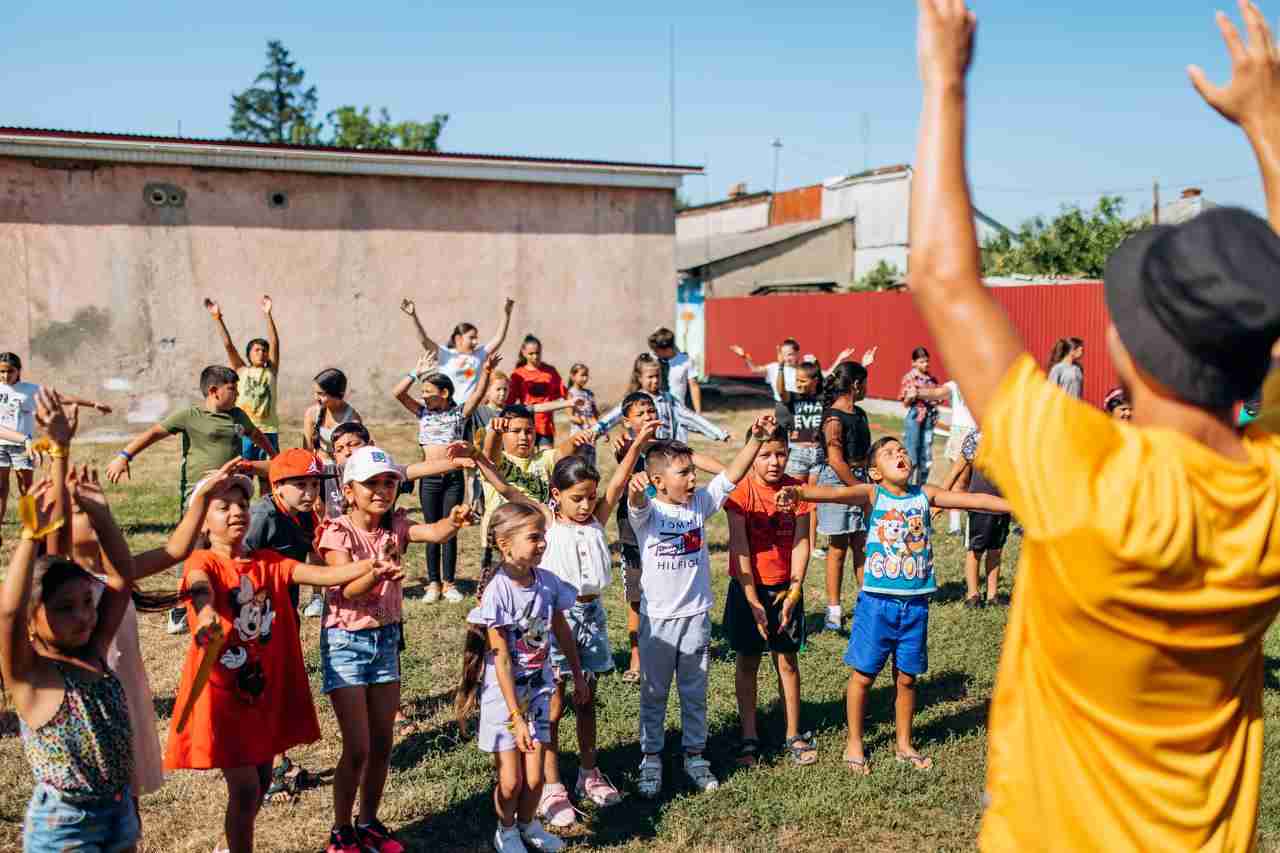
We are shaping an environment where Roma can communicate to one another, making it easier to get through it
Having spent a few months in Transcarpathia, Ihor and his family decided to leave for Germany. He explains that he had several reasons to do that: looking for a job and a wish to continue his religious mission.
“There were many Roma abroad who had left but yet had not get adopted in their new residence place. We are grateful to Germany for giving all the essentials for living – flats, social insurance. But they still lack an environment, literally having nobody to talk to due to the language barrier.
For even in Germany those stereotypes do exist, namely that Roma are those in the worst meaning. And many do not readily communicate with them in a friendly way.
So, to keep our faith and church, we realized we had to go where the need is the greatest.
A we first arrived to the district where the church is located, we saw there many Roma from Nykolayv and other parts of Ukraine. As I told them there would be religious services to start soon and they could come to church, they really gave a sincere response, asking me for a contact number and address
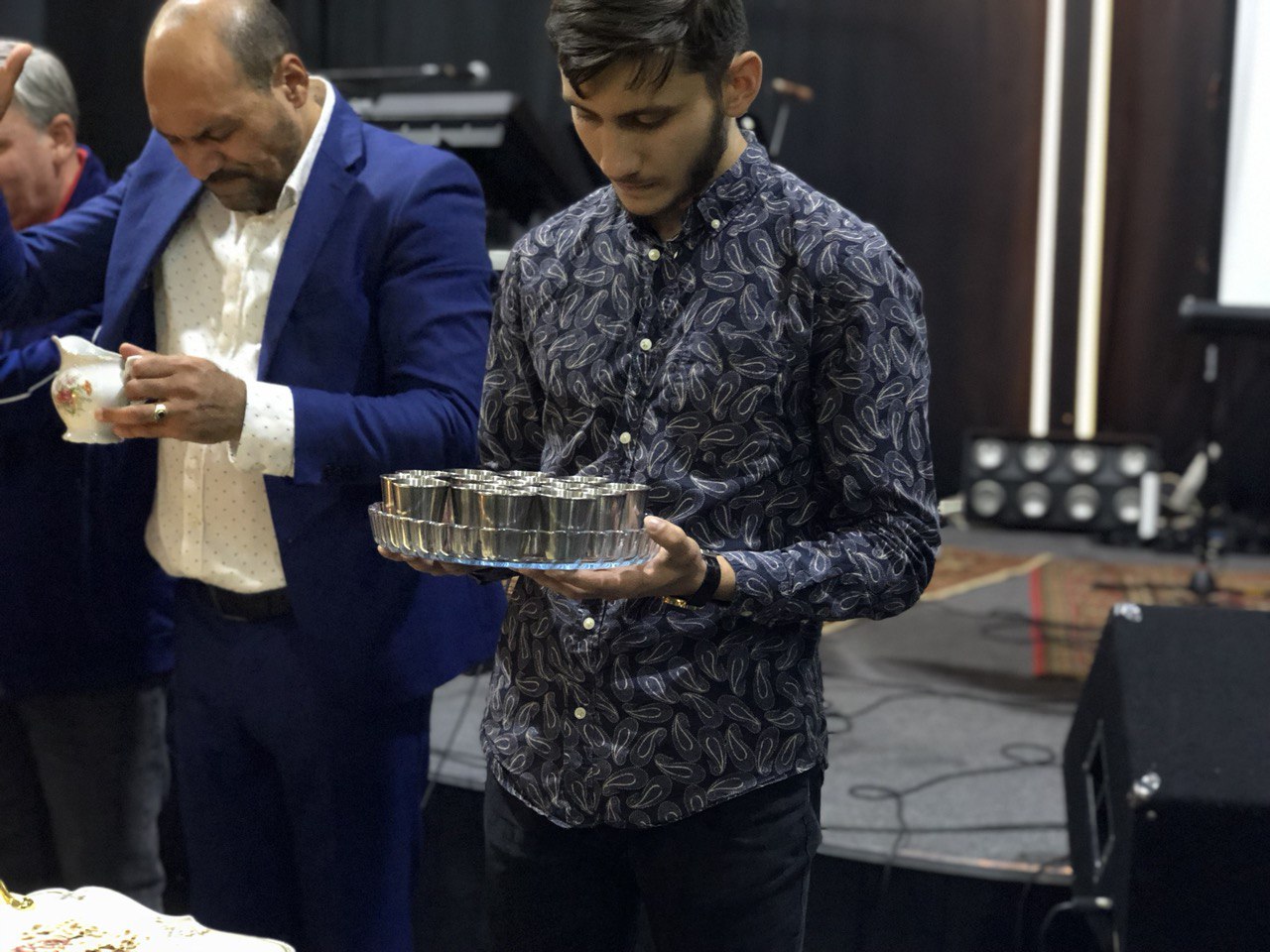
I must say that, neither in Kharkiv nor in Uzhhorod, is our church closed for others. Yes, it is mainly Roma who visit it, but any may.”
Also Ihor and his friends is active in volunteering, delivering humanitarian aid to Ukraine.
“We do not think like this: oh, we have moved and left all our troubles behind so we can live at our leisure. We still thinks we are Ukrainians, and we do feel the pain for our Ukraine. Some 5 or 6 generations of our family live here. This land is ours!
Our cultures have indeed united between each other during this time. There are lots of Ukrainian songs with Romani tunes. Roma are indeed a kid of spice to the juicy Ukrainian borshch.
To be honest, it happens to us here, abroad, that we ask ourselves with a scorn “Why did we ever leave?” And then you see these people around, in need of help, and you realize you have to stay here.
True, the issue of to live or to die has been solved here but the question remains: how to keep on living in a new place. We are shaping a new community, a new environment, where Roma can communicate to one another, making it easier to get through it. God has now opened a new door for us, to make people come together.”
- “In Italy Roma mostly prefer not to mention their nationality”. The story below is by Ruslana Polianska
- “This war has really made us all equal”: Petro Rusanienko tells of Roma people abroad
Article by: Halyna Hychka, the Varosh
Photos by: granted by Ihor Antonenko from his personal archives
This article has been compiled with the support from the International “Renaissance” Fund, within the scope of the project “Counteraction to prejudices and stereotypes towards Roma during war, consolidation around the common strive for victory”. The article reflects the authors’ opinions, which may not necessarily coincide with that by the International “Renaissance” Fund





